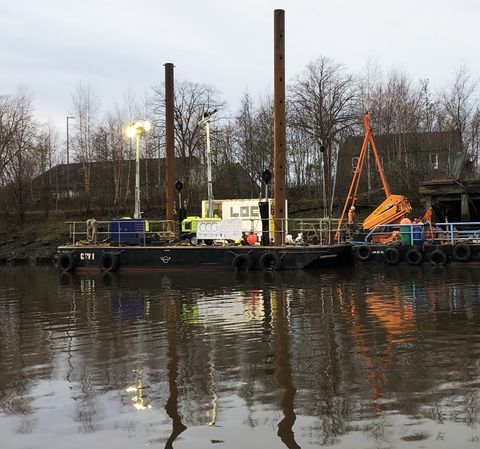Marine Geotechnical Investigations
CCG has a specialist marine geotechnical division who are experienced in operating in the challenging near shore environment.
Our specialist marine drilling equipment is easily transported worldwide with capabilities in Cable Percussion and Rotary borehole drilling, Cone Penetrometer Testing (CPT), Vibracoring, Dynamic Sampling, Dynamic Probing and Grab Sampling.
To facilitate marine investigation, equipment may be mounted on fixed jack-up platforms, floating pontoons or other specialist marine plant such as Meercats. Selection of the carrier vessel is based on accessibility, environment and the scope and confining parameters of the proposed investigation.
In obtaining detailed geotechnical information pertaining to the geology and hydrogeology of the marine environment, intrusive exploratory methods are often combined with in-situ testing such as dilatometer and pressuremeter testing, standard penetration or shear vane testing.
Often, where work is proposed within waters that have been subjected to military action, the investigation is combined with ordnance clearance by unexploded ordnance survey techniques.
CCG
are equipped to undertake detailed geotechnical investigation across the full scope of varied marine environments, informing the planning and design of projects such as new bridge crossings, harbour extensions, pontoon landing stages, offshore platforms, land reclamation and dredging, pipeline routes, offshore wind farms.
Recent marine investigations have included the detailed investigation of the new River Wear Bridge Crossing, Sunderland, the expansion of Port Weston Dock, Runcorn, and West Rhyl Coastal Defence Scheme.
For advice and services in connection with Marine Geotechnical Investigations, please contact Chris Bolan CEng MICE CEnv MICT or any member of the technical team.


